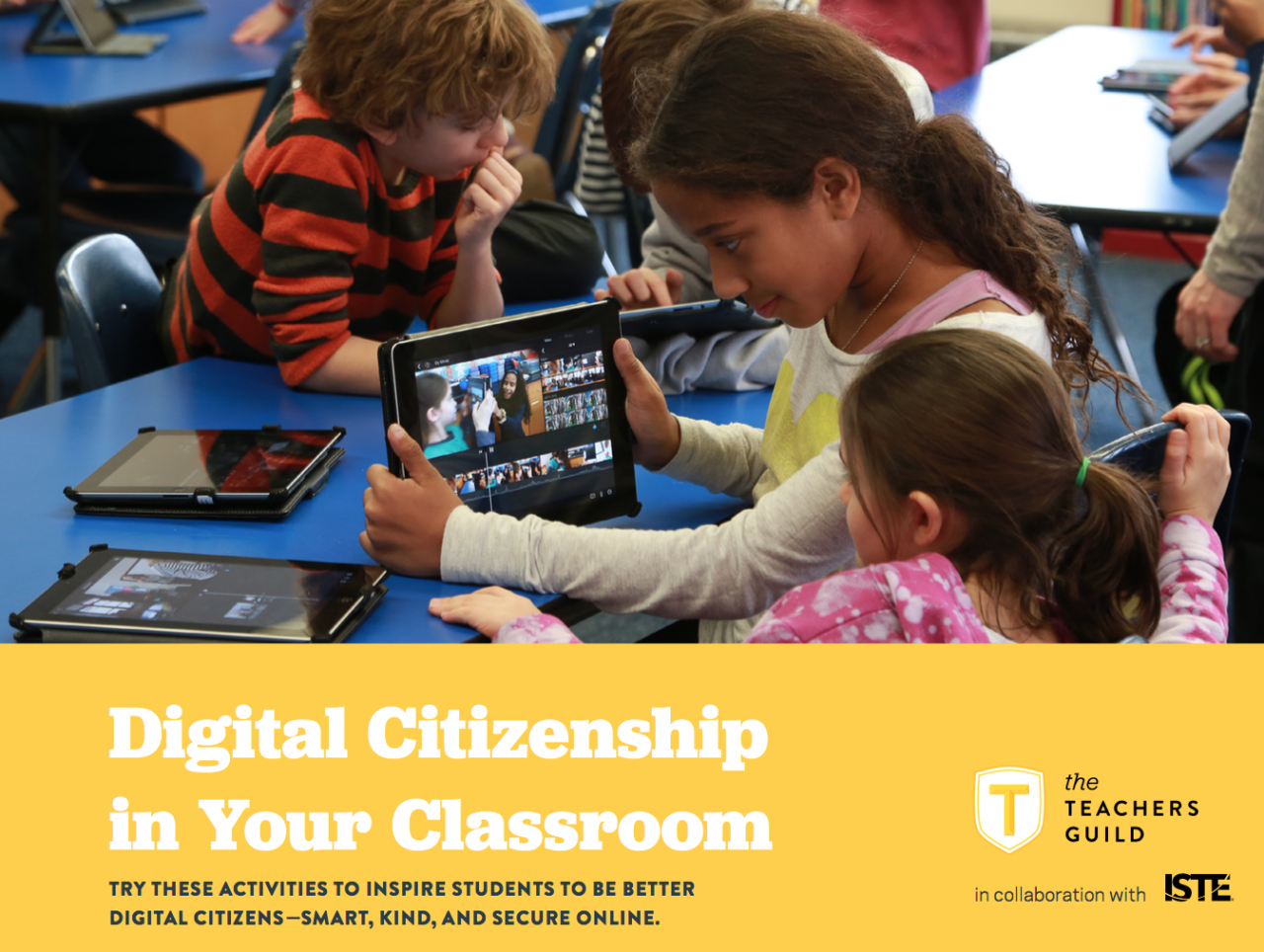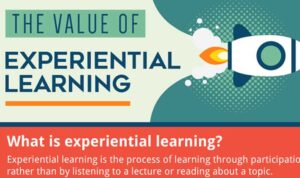How Schools Can Promote Digital Citizenship is an essential consideration in today’s interconnected world where technology is woven into the fabric of daily life. As students navigate the digital landscape, understanding their responsibilities and rights online becomes crucial. This discussion explores how schools can integrate digital citizenship into their curricula, engage students, involve parents, and leverage community resources to foster a culture of responsible digital behavior.
By defining digital citizenship and highlighting its significance, we can appreciate the profound impact that technology has on students’ interactions and behaviors. Schools are uniquely positioned to cultivate the necessary skills and awareness among students, ensuring they can confidently and safely navigate the online world.
Understanding Digital Citizenship: How Schools Can Promote Digital Citizenship
Digital citizenship refers to the responsible and ethical use of technology by individuals in an increasingly digital world. In the modern educational landscape, it is crucial for schools to cultivate digital citizenship among students, as technology permeates every aspect of their lives. By promoting digital citizenship, schools can ensure that students not only develop technical skills but also learn important social and ethical norms related to digital interactions.
This holistic approach prepares students for both academic and personal success in a connected society.The impact of technology on students’ behavior and interaction is profound. With the advent of social media, messaging apps, and online learning platforms, students have unprecedented access to information and communication. However, this also raises concerns regarding cyberbullying, privacy breaches, and misinformation. Understanding the dynamics of these interactions is essential for creating a safe and supportive learning environment.
Schools must equip students with the tools to navigate digital spaces responsibly, fostering a culture of respect and integrity online.
Key Components of Digital Citizenship
To effectively promote digital citizenship, schools should focus on several key components. These components serve as the foundation for teaching students how to use technology wisely and ethically. First, it is essential to educate students about online safety and privacy. This includes understanding the importance of safeguarding personal information and recognizing potential risks associated with sharing content online. Students should be aware of how their digital footprint can affect their future opportunities.Second, digital literacy plays a crucial role in fostering informed users of technology.
Schools should teach students how to critically evaluate online sources, discern credible information from misinformation, and utilize digital tools effectively for learning and collaboration. Additionally, social responsibility is a vital aspect of digital citizenship. Encouraging students to engage in positive online behaviors, such as respectful communication and community involvement, helps to build a supportive digital community. Schools can promote this by integrating projects that encourage students to use technology for social good, such as activism or volunteerism.Finally, understanding digital etiquette is essential for fostering a respectful online environment.
Schools should teach students the norms of appropriate behavior in digital communication, including the significance of tone, language, and empathy in their interactions.
The ability to navigate the digital world responsibly is as crucial as traditional literacy in modern education.
These components collectively enhance students’ awareness and skills, empowering them to become responsible digital citizens who contribute positively to society.
Curriculum Integration for Digital Citizenship
Integrating digital citizenship into the school curriculum is essential for preparing students to thrive in an increasingly digital world. By embedding these principles into existing subjects, educators can ensure that students not only learn academic content but also develop the skills necessary to navigate online environments safely and responsibly.A comprehensive framework for integrating digital citizenship can be structured around core subjects, emphasizing technology use and online safety.
This approach allows for a seamless transition into discussions about digital ethics, online behavior, and the impact of technology on society.
Framework for Integration
The framework for incorporating digital citizenship into the curriculum can be broken down into several key areas that align with existing subjects. This will allow teachers to integrate relevant topics without overwhelming their lesson plans.
- Language Arts: Incorporate discussions on digital communication skills, emphasizing the importance of respectful interactions in online platforms.
- Social Studies: Explore the implications of digital footprints and online privacy through case studies of real-world events involving social media.
- Science: Analyze the impact of technology on the environment and discuss ethical considerations surrounding digital innovations.
- Mathematics: Use data analysis skills to assess online information credibility and understand statistics related to digital behaviors.
Methods for Incorporating Technology and Online Safety
Effective integration of technology and online safety into everyday lessons requires deliberate planning. Educators can use various methods to promote these concepts across the curriculum.
- Utilize interactive simulations that demonstrate the consequences of online actions, allowing students to learn through experience.
- Incorporate role-playing activities where students can practice responding to cyberbullying or misinformation in a controlled environment.
- Engage students in critical discussions about current events related to technology, prompting them to research, analyze, and present their findings on the implications of digital citizenship.
- Provide access to online resources and tools that foster digital literacy, enabling students to evaluate information and create content responsibly.
Workshops and Training Sessions for Teachers
Investing in professional development for teachers is crucial to ensure they feel equipped to handle digital citizenship topics effectively. Organizing workshops and training sessions can enhance educators’ understanding and approach to these issues.
- Conduct sessions on the latest trends in digital technology and their implications for student behavior and learning.
- Facilitate collaborative discussions among teachers to share best practices and resources related to teaching digital citizenship.
- Offer specialized training on recognizing online threats, such as cyberbullying and scams, enabling teachers to guide students appropriately.
- Create partnerships with local organizations that specialize in technology education to provide ongoing support and resources for educators.
Engaging Students in Digital Citizenship
Promoting digital citizenship among students goes beyond traditional teaching methods; it involves engaging them in meaningful activities that resonate with their everyday experiences online. By implementing interactive activities and encouraging student-led initiatives, schools can foster a culture of responsible digital use. This engagement not only enhances students’ understanding of digital rights and responsibilities but also empowers them to take an active role in shaping their online communities.
Interactive Activities to Promote Understanding
Designing interactive activities is crucial for promoting digital citizenship in a way that resonates with students. These activities should encourage active participation and critical thinking regarding online behavior. Some effective examples include:
- Role-Playing Scenarios: Students can act out various scenarios that involve ethical dilemmas in digital contexts, allowing them to explore the consequences of different choices.
- Digital Rights Campaigns: Class projects where students create campaigns around issues like cyberbullying or digital privacy can help raise awareness and promote responsible behavior.
- Online Safety Workshops: Hosting workshops where students learn to identify phishing attempts or manage their digital footprints can empower them to protect themselves and others online.
- Gamified Learning: Implementing educational games that simulate online environments can help students learn about digital citizenship in an engaging and interactive way.
Student-Led Initiatives Encouraging Positive Behavior
Student-led initiatives are vital for cultivating a positive online culture. These projects not only encourage responsibility but also allow students to become leaders in their communities. Examples include:
- Peer Support Groups: Establishing groups where students support each other in navigating digital challenges fosters a sense of community and shared responsibility.
- Awareness Campaigns: Encouraging students to create posters, videos, or social media content that promotes digital etiquette can spread positive messages throughout the school.
- Mentorship Programs: Older students mentoring younger peers regarding online safety and etiquette helps reinforce a culture of respect and responsibility.
The Role of Peer Mentoring in Responsible Digital Use
Peer mentoring plays a significant role in fostering a culture of responsible digital use among students. It allows for relatable guidance and support and can have a lasting impact on students’ online behaviors. Key aspects of peer mentoring include:
- Modeling Positive Behavior: Mentors can set examples by demonstrating responsible online conduct, influencing mentees to emulate these behaviors.
- Open Discussions: Creating a safe space for students to discuss their online experiences fosters honesty and leads to better understanding of digital citizenship.
- Feedback and Reflection: Encouraging students to provide feedback on their peer experiences helps build critical thinking about digital interactions.
“Peer mentoring creates a dynamic where students feel more comfortable discussing digital issues, leading to a more informed and responsible online community.”
Parental Involvement in Promoting Digital Citizenship
Schools play a crucial role in fostering digital citizenship among students, but the involvement of parents is equally essential. By engaging parents in the educational process, schools can create a supportive environment that reinforces responsible online behavior at home and beyond. This collaboration helps children navigate the digital world more effectively, ensuring they understand the importance of their actions in an online context.To effectively educate parents about digital citizenship, schools can implement various strategies.
These strategies can empower parents with the knowledge and tools they need to guide their children’s online activities. Creating a well-rounded approach involves developing resources, organizing workshops, and promoting ongoing communication between schools and parents.
Resources for Parents to Guide Online Activities
Providing parents with accessible resources is vital for helping them support their children in making wise online choices. Schools can develop diverse materials tailored to the needs of families, which may include:
- Informative Guides: Create easy-to-understand guides that Artikel key aspects of digital citizenship, including privacy, online etiquette, and safe browsing practices.
- Workshops and Webinars: Organize interactive sessions where parents can learn about digital citizenship principles and how to discuss them with their children.
- Resource Lists: Compile lists of age-appropriate apps, websites, and tools that promote positive online behavior, along with tips on monitoring device usage.
- Newsletters: Issue regular newsletters that highlight relevant topics, recent trends in technology, and advice on fostering safe online habits.
By equipping parents with these resources, schools can foster a collaborative approach to digital citizenship that extends beyond the classroom.
Strategies for Involving Parents in Digital Citizenship Programs
Involving parents in school-led digital citizenship programs can enhance the effectiveness of these initiatives. Implementing strategies that encourage parental participation fosters a community-wide commitment to promoting responsible online behavior. Consider the following approaches:
- Parent-Student Activities: Host events where parents and children engage in activities designed to explore digital citizenship concepts together, such as interactive games or collaborative projects.
- Parent Advisory Committees: Establish committees that include parents in discussions about digital citizenship curricula, allowing them to contribute their insights and perspectives.
- Feedback Mechanisms: Create systems for parents to provide feedback on digital citizenship initiatives, ensuring their voices are heard and that programs reflect community needs.
- Online Forums: Develop platforms for parents to share experiences and strategies regarding their children’s online activities, fostering a supportive network.
By actively involving parents in these programs, schools can build a strong partnership that supports students in becoming responsible digital citizens.
Assessing Digital Citizenship Proficiency

To effectively foster digital citizenship among students, it’s crucial to evaluate their understanding and application of these principles. Assessment not only measures knowledge but also encourages students to reflect on their digital behavior and its impact on others. By developing a clear framework for assessment, educators can ensure that digital citizenship is integrated into the learning process.One effective method for assessing digital citizenship proficiency is through the development of tailored assessment tools and rubrics.
These tools can provide a structured approach to measuring students’ skills in various aspects of digital citizenship, such as online safety, ethical behavior, and responsible communication. A well-designed rubric can delineate expectations and offer clear criteria for evaluation, which can enhance students’ understanding of the skills they need to demonstrate.
Assessment Methods for Digital Citizenship
Several methods can be employed to assess students’ grasp of digital citizenship principles effectively. Each method provides unique insights into student proficiency and areas needing improvement.
- Self-Assessment Surveys: Students can complete surveys that gauge their understanding of digital citizenship principles, helping them reflect on their own practices and identify areas for growth.
- Peer Reviews: Implementing peer review sessions allows students to evaluate each other’s digital conduct, fostering a collaborative learning environment and reinforcing key concepts.
- Digital Portfolios: Students can create digital portfolios showcasing their work and experiences related to digital citizenship. This method promotes self-reflection and provides tangible evidence of their skills.
- Classroom Discussions: Facilitating discussions around real-life scenarios involving digital citizenship encourages critical thinking and helps assess students’ ability to apply their knowledge practically.
Development of Assessment Tools and Rubrics
Designing effective assessment tools and rubrics is pivotal in measuring digital citizenship skills. These tools should be comprehensive and align with the specific digital citizenship competencies Artikeld in the curriculum.
- Criteria Definition: Establish clear criteria for each skill associated with digital citizenship, such as online etiquette, information literacy, and cyber safety. Each criterion should be measurable and observable.
- Performance Levels: Create a scale that describes performance levels for each criterion. For instance, levels could range from ‘Beginning’ to ‘Exemplary,’ detailing what each level entails.
- Feedback Mechanisms: Incorporate mechanisms for providing constructive feedback, allowing students to understand their strengths and areas for improvement.
- Alignment with Learning Goals: Ensure that the assessment tools correlate with the learning objectives of the digital citizenship curriculum, promoting a holistic approach to evaluation.
Tracking Progress and Improvement
Monitoring students’ progress in digital citizenship is essential for fostering continuous development. Tracking tools and techniques can help educators identify improvements and tailor instruction accordingly.
- Regular Check-ins: Conduct regular check-ins with students to discuss their understanding and application of digital citizenship principles. This personalized approach can maintain engagement and motivation.
- Progress Tracking Systems: Implementing digital tools that record and visualize students’ progress over time can provide valuable insights into their growth in digital citizenship.
- Reflective Journals: Encourage students to maintain reflective journals documenting their experiences and learning related to digital citizenship. This practice not only fosters reflection but also allows for easier tracking of development.
- Parent Involvement: Engage parents in the tracking process by providing them with resources and updates on their child’s digital citizenship progress, promoting a collaborative effort in reinforcing positive behaviors.
Collaborating with Community Resources
In today’s digital age, schools play a crucial role in fostering digital citizenship among students. Collaborating with community resources helps expand the reach and impact of digital citizenship programs. By engaging local organizations and technology experts, schools can create a more comprehensive approach to teaching responsible digital behavior.Establishing partnerships with local organizations can enhance digital citizenship initiatives through shared resources, expertise, and outreach.
Such collaborations bring additional perspectives and skills to the educational environment, enriching students’ understanding and practices of digital responsibility. Schools can leverage these partnerships in various ways.
Partnerships with Local Organizations
Building relationships with local organizations can provide vital support in promoting digital citizenship. Collaborations can include:
- Workshops and Training Sessions: Partnering with nonprofit organizations focused on technology can help schools offer high-quality workshops that equip students with essential digital skills and knowledge.
- Community Awareness Events: Events such as Digital Citizenship Day can be organized in collaboration with local libraries or tech companies, featuring activities that promote safe and responsible online behavior.
- Resource Sharing: Schools can benefit from shared materials, such as educational pamphlets, online resources, and curriculum guides developed by community organizations.
Engaging students through community-driven events not only reinforces the principles of digital citizenship but also fosters a sense of belonging and responsibility within the wider community. Schools can benefit significantly from bringing technology experts into the classroom.
Leveraging Technology Experts, How Schools Can Promote Digital Citizenship
Inviting technology experts to provide workshops and seminars can greatly enhance students’ understanding of digital citizenship. These experts can offer hands-on experiences and insights that might not be available in the standard curriculum. Key benefits include:
- Real-world Perspectives: Technology experts bring real-world examples of digital citizenship challenges and solutions, helping students relate to the importance of responsible online behavior.
- Interactive Learning: Workshops led by experts often involve interactive elements, such as simulations and discussions, which can engage students more deeply than traditional teaching methods.
- Networking Opportunities: Students gain exposure to potential mentorship and internship opportunities in technology fields, fostering their interest in pursuing careers in digital literacy and safety.
In summary, partnering with local organizations and engaging technology experts are effective strategies for schools aiming to enhance their digital citizenship programs. Such collaborations not only broaden educational horizons but also create stronger community connections, ensuring students are well-equipped to navigate the digital world responsibly.
The Role of Social Media in Digital Citizenship
Social media has become a pivotal part of students’ lives, influencing how they communicate, share information, and interact with their peers. Its ubiquity necessitates a focused discussion on the implications for digital citizenship. Understanding the impact of social media on digital behavior is essential for fostering responsible online engagement among students.The rapid growth of social media has transformed communication styles among students, often leading to both positive opportunities and significant challenges.
On one hand, platforms like Twitter, Instagram, and TikTok facilitate creative expression and community building. On the other hand, they can also lead to issues such as cyberbullying, misinformation, and privacy concerns. Analyzing these dynamics helps educators craft effective strategies for promoting responsible social media use in schools.
Impact of Social Media on Digital Behavior
The influence of social media on digital behavior is multifaceted and can shape how students perceive themselves and others. It is crucial to recognize both the beneficial aspects and the potential pitfalls. The following points Artikel key impacts:
- Communication Skills: Social media encourages concise communication, often leading to an over-reliance on abbreviations and emojis, which may hinder formal writing skills.
- Interpersonal Relationships: While social media connects students globally, it can also lead to superficial relationships, impacting the depth of face-to-face interactions.
- Self-Expression and Identity: Platforms enable students to express themselves creatively, but they can also foster unrealistic standards of beauty and success, leading to self-esteem issues.
- Misinformation Spread: The rapid sharing of information can result in the spread of false narratives, necessitating critical thinking skills to discern reliable sources.
Guidelines for Responsible Social Media Use
Establishing clear guidelines for social media use in schools is essential for promoting a safe and respectful environment. The following guidelines can serve as a framework for students:
- Respect Privacy: Students should be taught to respect their own and others’ privacy by understanding the consequences of sharing personal information online.
- Think Before Posting: Encourage students to consider the potential impact of their posts, including how they may be perceived by peers and the broader community.
- Report Inappropriate Behavior: Foster a culture where students feel comfortable reporting negative experiences such as cyberbullying without fear of backlash.
- Engage Critically: Teach students to evaluate the credibility of information before sharing it, promoting a habit of research and verification.
Case Studies of Social Media Challenges
Examining real-world situations highlights the complexities of social media in educational settings. Several case studies illustrate common challenges and effective interventions:
“One notable incident involved a series of cyberbullying incidents on a popular platform, leading to significant emotional distress among affected students. The school organized workshops to address the issue, empowering students to support one another and promoting empathy.”
“In another case, misinformation about a local event went viral among students. The school responded by hosting an assembly focused on digital literacy, teaching students to identify credible sources and understand the implications of sharing unverified information.”
These examples underscore the need for proactive measures in schools to foster a culture of responsibility and respect in social media engagement. By addressing challenges head-on and utilizing educational opportunities, schools can equip students to navigate the digital landscape effectively.






